Can ‘Mygyu’ satisfy Malaysia’s growing appetite for premium beef?
Forget expensive imports, Mygyu is quickly becoming a local favourite, proving premium beef can have a Malaysian identity
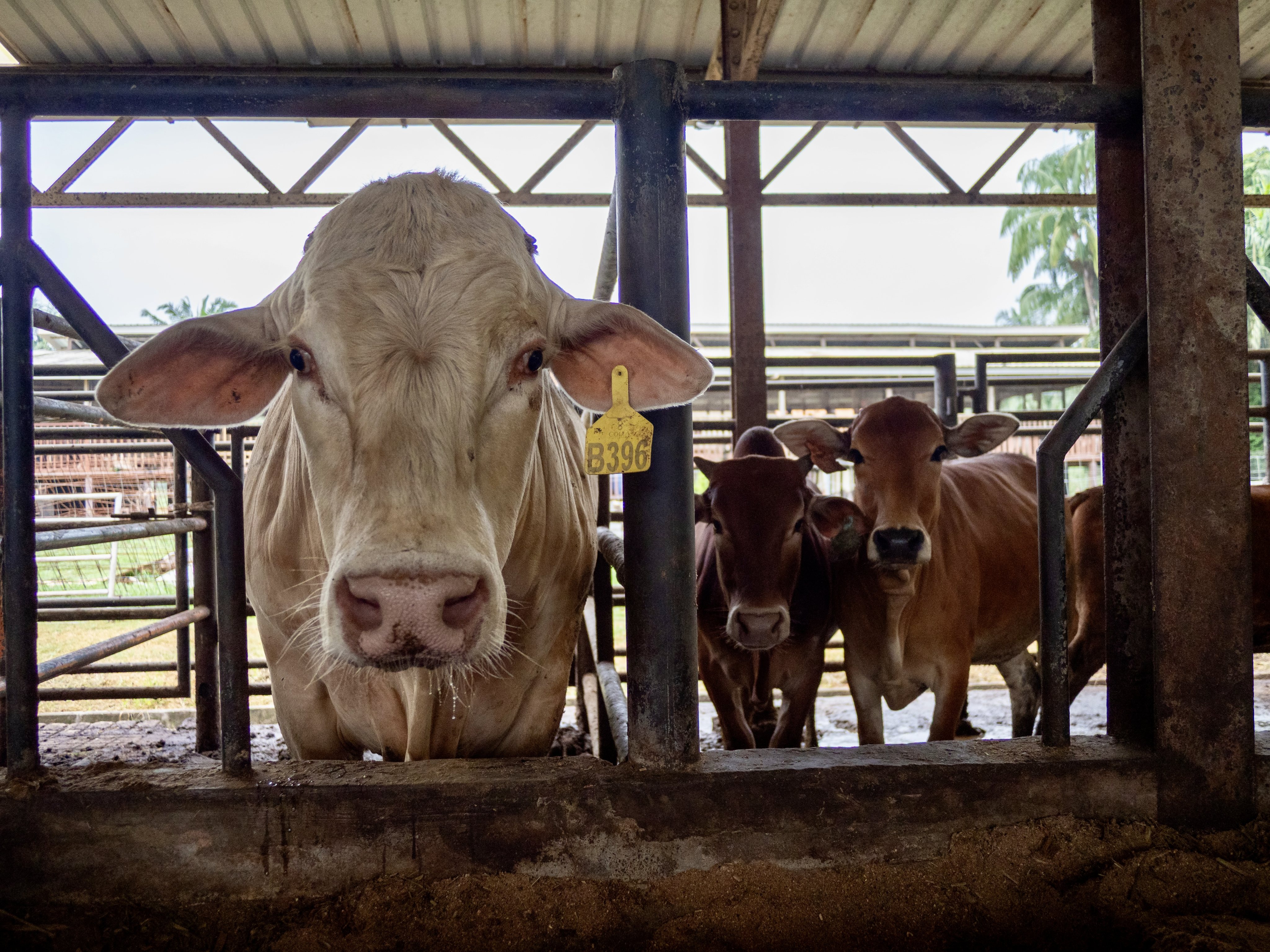
Under the sweltering sun in coastal Kuala Selangor, Dollah lumbers to his feet, his 800kg (1,764lb) frame towering above the herd. The Australian-Malaysian crossbreed isn’t just any bull, he’s the prized patriarch of a 30-head cattle farm producing Mygyu: Malaysia’s answer to Japan’s famously marbled Wagyu.
At Colla Cattle Farm, breeders see both promise and pressure in Malaysia’s appetite for premium beef. With Mygyu, they aim to offer an affordable local alternative to imported Wagyu as rising living costs and government scrutiny of luxury imports cast doubt over the future of high-end foreign products.
Since its establishment in 2017, the farm has grown rapidly. It now boasts five cowsheds and is expanding its napier grass fields to ensure a steady supply of feed for the growing herd.
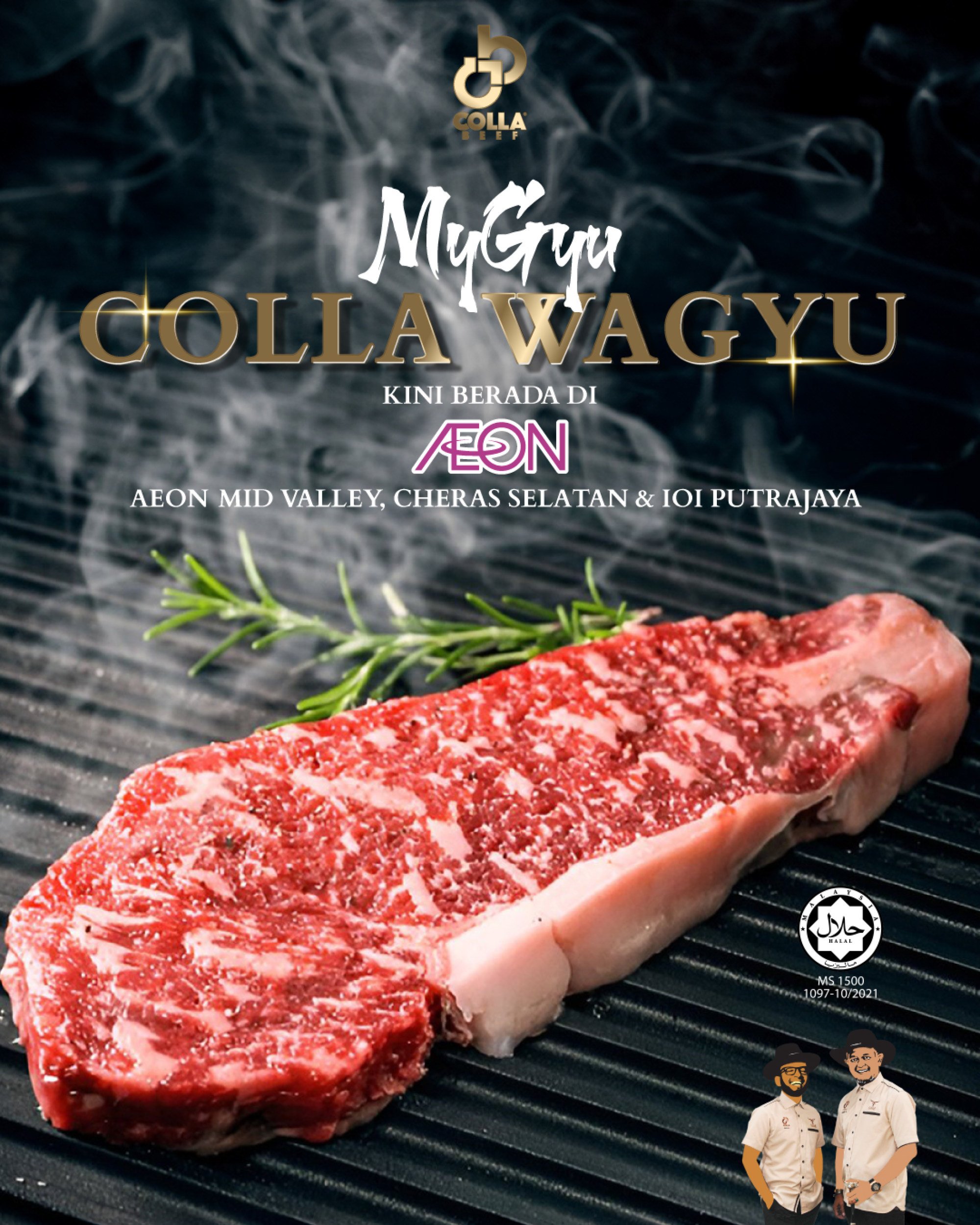
The farm raced to install a newly acquired meat-processing machine imported from China ahead of the Muslim holiday of Eid al-Adha, which centres on the ritual slaughter of livestock.
With a complete chain from slaughter to processing, packaging as well as chilling, the beef products produced here will be ready for direct delivery to customers.
“Before this we could process five to eight cows an hour,” said Jamal Abdul Karim, Colla Cattle Farm chief executive officer. “But after this we can go up to 20 in an hour.”
Dollah, a breeding bull, is the farm’s key asset and, on a recent visit by This Week in Asia, looked a little tired.
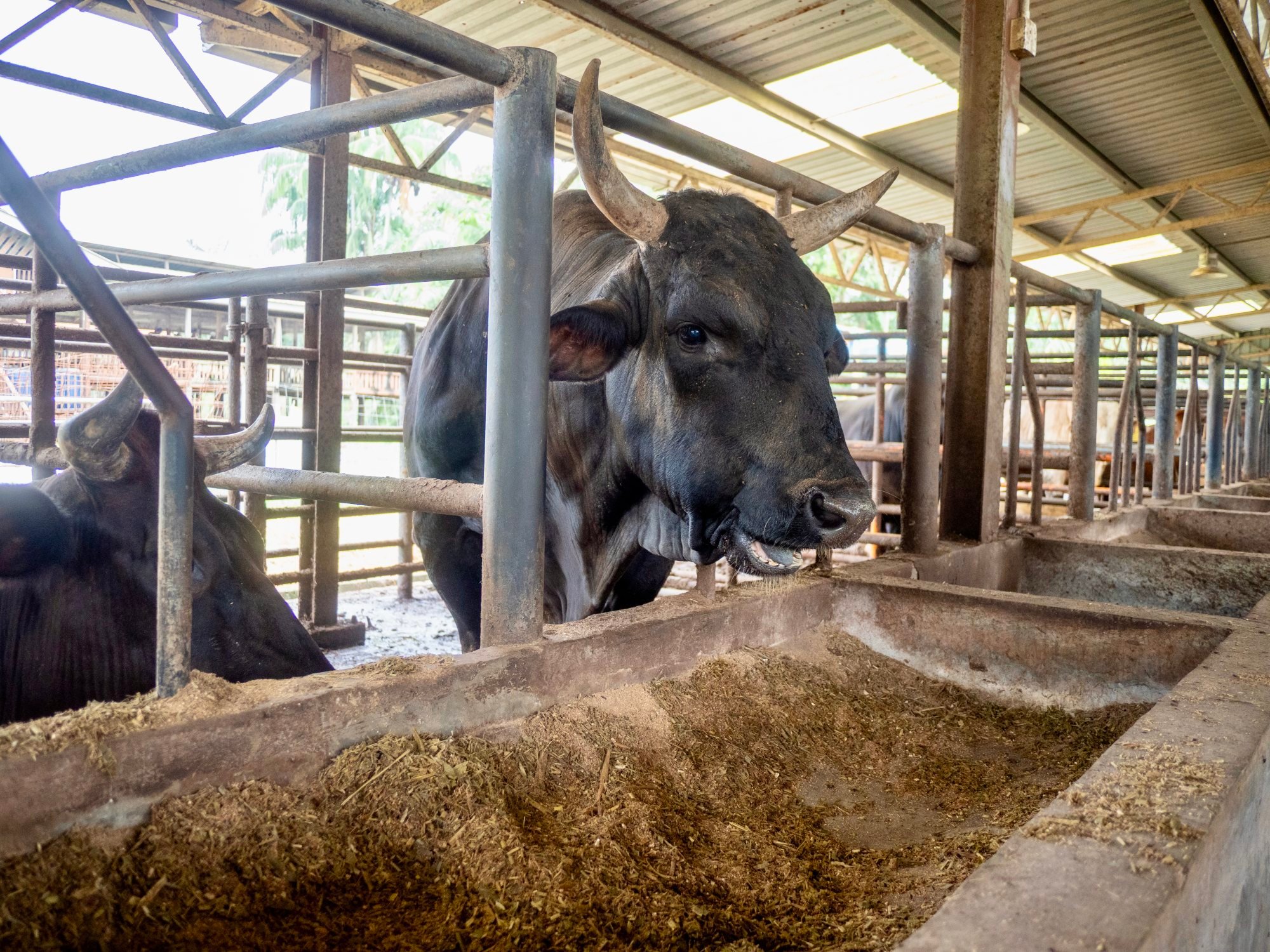
“He used to be bigger, but we just finished another round of breeding, so he’s a little worn out,” a farmhand joked.
Rare and costly, Wagyu has seen a recent rise in popularity across Malaysia, no longer limited to high-end yakiniku joints. Today, it’s turning up as burger patties and pizza toppings, riding a wave of culinary aspiration.
But with prices for A5-grade Wagyu reaching upwards of 2,000 ringgit (US$470) per kilogram, Colla’s Mygyu offers a more affordable indulgence at around 400 ringgit per kilogram, bringing a taste of luxury within reach of Malaysians having to make do with tighter household budgets.
Localising luxury
Inside his office, amid the hum of construction from the farm’s ongoing expansion, Jamal explained the brand’s origins.
“Wa means Japanese, gyu means beef, so Wagyu is Japanese beef. So we changed the wa to ‘my’ for Malaysia. Mygyu, Malaysian beef,” he said.
“The taste is the same, the only difference is the marbling.”
Marbling – the fine, weblike streaks of intramuscular fat – is what gives Wagyu its melt-in-your-mouth texture and deep umami flavour. Unlike ordinary beef, where fat tends to collect around the edges, Wagyu’s fat is evenly dispersed throughout the muscle and melts at a lower temperature.
But Jamal believes the reduced marbling in Mygyu is actually a better fit for local tastes.
Malaysians like a meatier textureJamal Abdul Karim, Colla Cattle Farm CEO
“Malaysians like a meatier texture,” he said. “When I first tasted it, I thought to myself, this could work here. And it has.”
The company now offers Mygyu skewers and patties alongside traditional cuts such as rump and brisket, with plans to expand its product range further.
“My next target is to open our own steakhouse,” Jamal said. “It shows how confident we are with our products.”
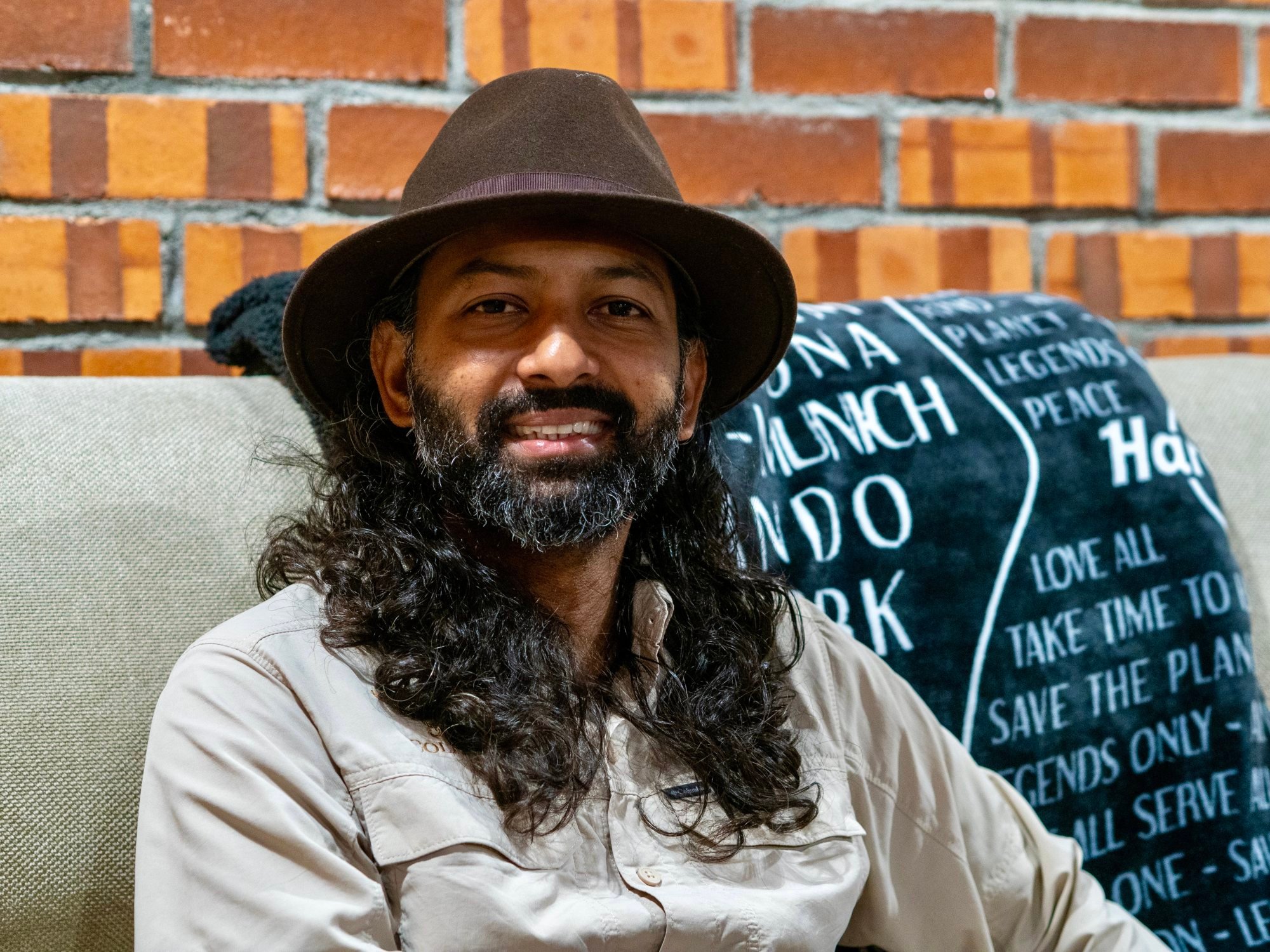
These local adaptations come as Malaysia prepares to expand its sales and services tax in July to cover a range of “non-essential goods” including king crab, salmon, cod, truffle mushrooms and imported fruits, which will all carry a 5 per cent levy.
The move has been widely panned by Malaysians, who argue it will exacerbate the already high cost of living in the country, especially when it comes to fruits. Although “local fruits” like mangoes and rambutan are exempt from the levy, many of these seemingly locally grown produce are actually imported from Thailand and China.
While Wagyu beef has so far been spared, Prime Minister Anwar Ibrahim’s frequent criticism of the “uber rich” and elites leading ostentatious lifestyles hints at a future where imported Wagyu from Japan or Australia could also be taxed, further pushing it beyond the reach of ordinary Malaysians.
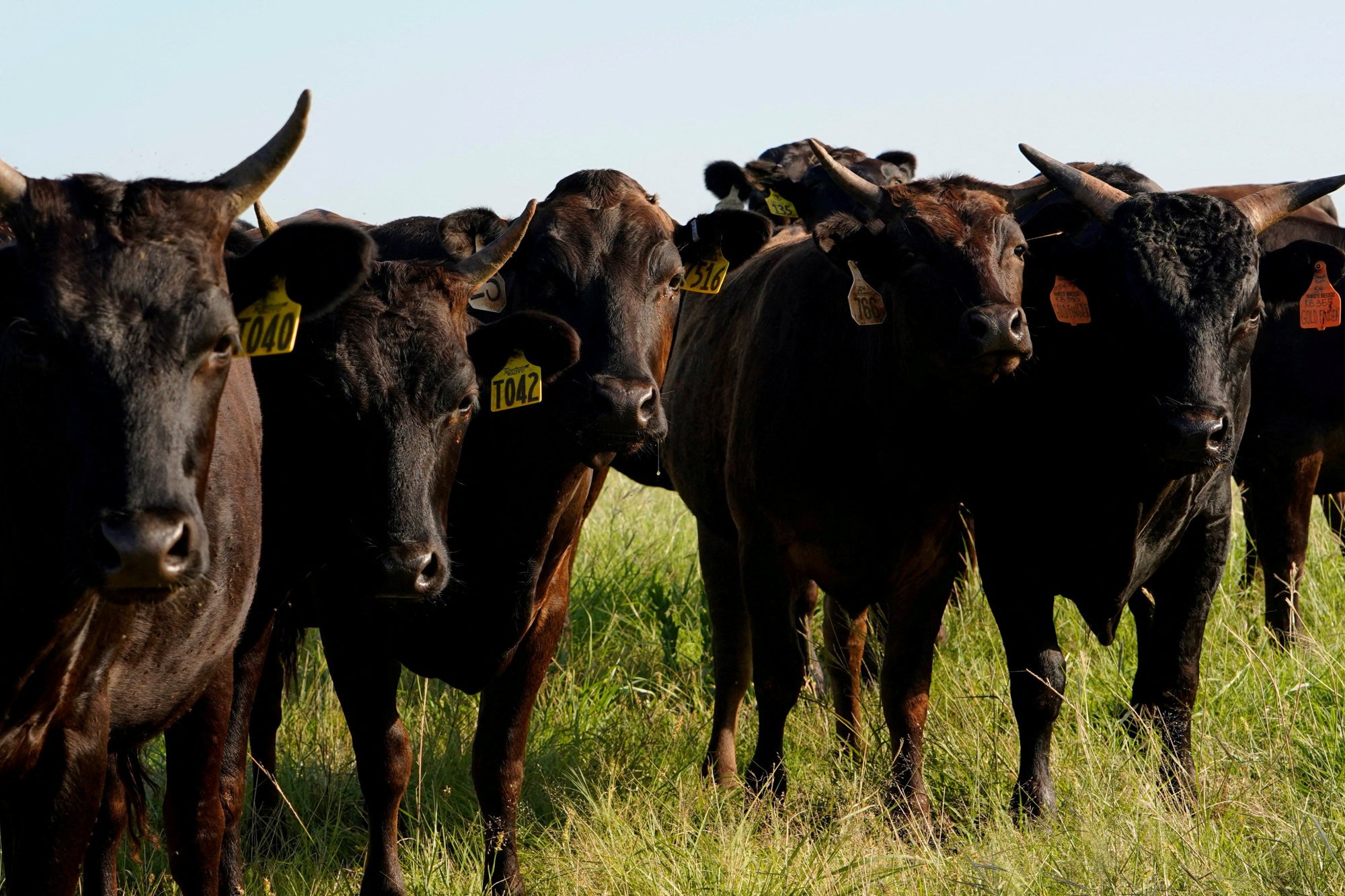
Beefing up supply
Meat consumption in Malaysia has risen in step with population growth and higher disposable incomes. In 2022, Malaysians consumed more than 240,000 tonnes of beef and buffalo meat, a 76 per cent increase from 2005, according to government data. The red meat market is forecast to grow from US$2.66 billion last year to US$3.5 billion by 2032.
This mirrors the projected expansion of the global halal meat sector, which is expected to rise from over US$900 billion in 2023 to US$1.78 trillion by 2033.
With a stringent and widely regarded halal certification programme, Malaysia is in a good position to capitalise on this global growth, according to observers .
However, locally produced meat supplies less than 20 per cent of market demand, forcing the country to import its meat from Australia and India.
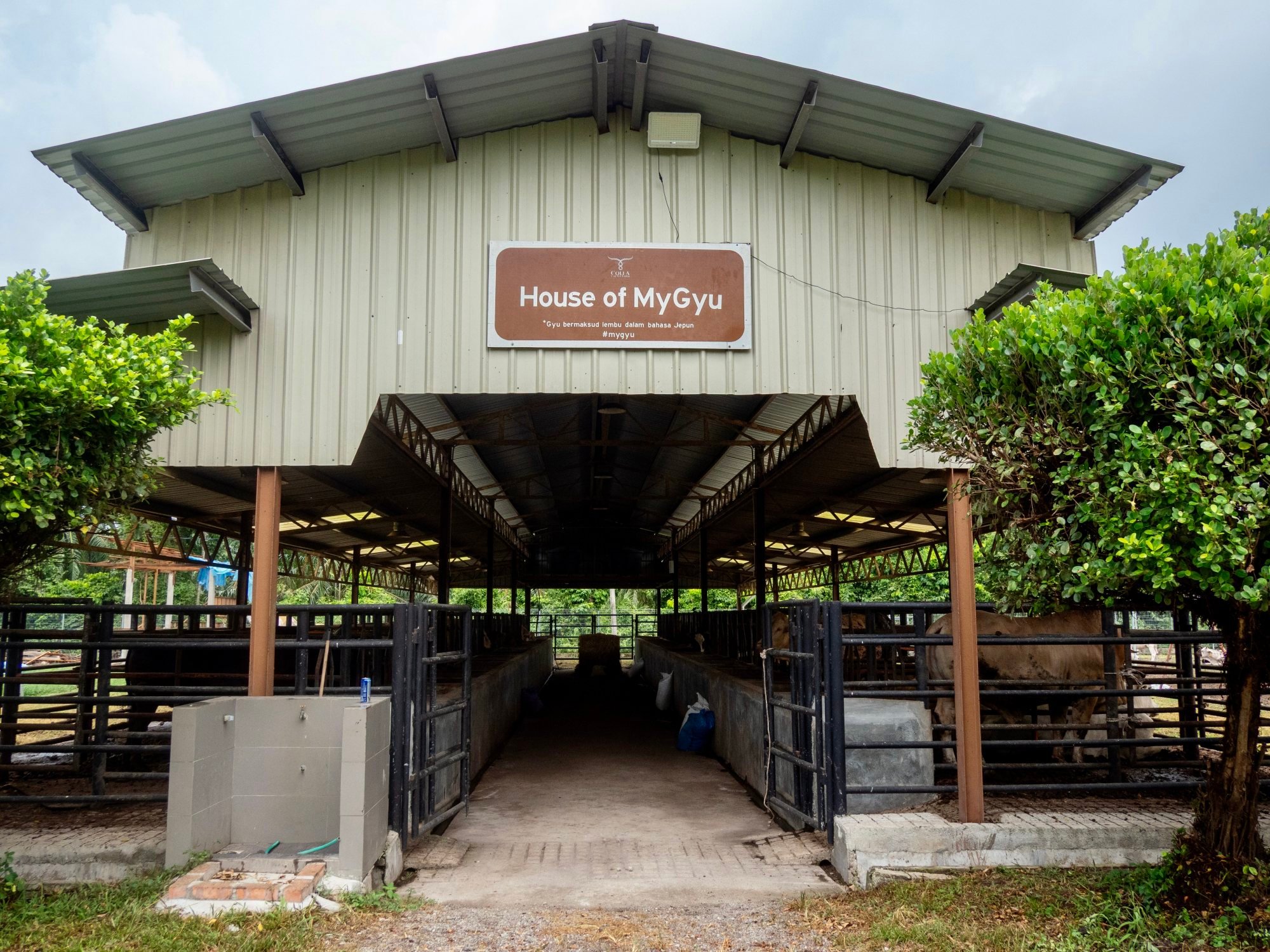
The hype around Mygyu has spurred others to follow suit. In Kelantan, a northeastern state in Peninsular Malaysia, another farm has begun promoting its own localised Wagyu: Kelgyu, a portmanteau of Kelantan and gyu.
Backed by the state government, the Kelgyu project aims to house up to 150 Wagyu cattle in covered pens. Officials say the goal is to capture both high-end and emerging domestic demand.
“The demand for Wagyu meat is on the rise, not only among high-end restaurants but also local consumers looking for alternatives in high-quality, locally produced meat,” Tuan Mohd Saripudin Tuan Ismail, Kelantan state executive councillor for agriculture and agri-food, said in May.
For some, names like Mygyu and Kelgyu may still sound like marketing gimmicks rather than serious competition to Japanese or Australian imports. But for Jamal, it represents a meaningful step towards creating premium Malaysian beef with its own identity.
“To be frank, the best meat in the world is from Japan and we cannot challenge them,” he said. “But at least we have our own premium meat that we call Mygyu. People can call us copycats, but this is our own Malaysian taste.”